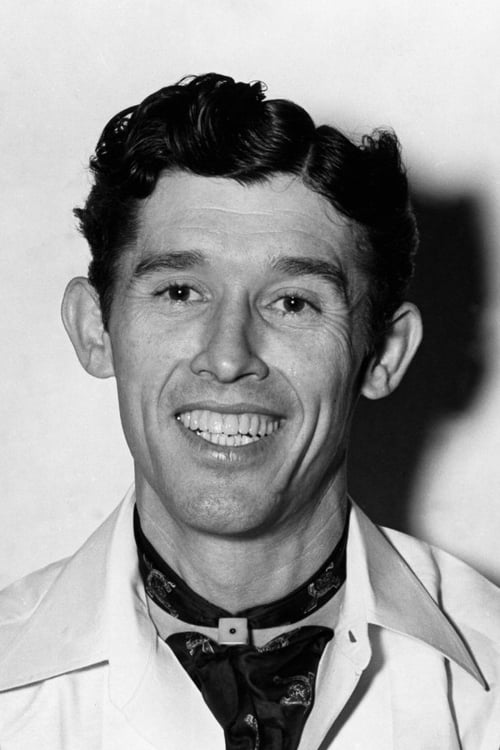
Roy Acuff
Nascimento : 1903-09-15, Maynardville, Tennessee, USA
Morte : 1992-11-23
História
From Wikipedia
Roy Claxton Acuff (September 15, 1903 – November 23, 1992) was an American country music singer, fiddler, and promoter. Known as the "King of Country Music," Acuff is often credited with moving the genre from its early string band and "hoedown" format to the star singer-based format that helped make it internationally successful. In 1952 Hank Williams told Ralph Gleason, "He's the biggest singer this music ever knew. You booked him and you didn't worry about crowds. For drawing power in the South, it was Roy Acuff, then God."
Acuff began his music career in the 1930s, and gained regional fame as the singer and fiddler for his group, the Smoky Mountain Boys. He joined the Grand Ole Opry in 1938, and although his popularity as a musician waned in the late 1940s, he remained one of the Opry's key figures and promoters for nearly four decades. In 1942, Acuff co-founded the first major Nashville-based country music publishing company—Acuff-Rose Music—which signed acts such as Hank Williams, Roy Orbison, and The Everly Brothers. In 1962, Acuff became the first living inductee into the Country Music Hall of Fame.

Self
Country music stars share stories and perform their hits. After the success of the first Country's Family Reunion, we had to do it again.
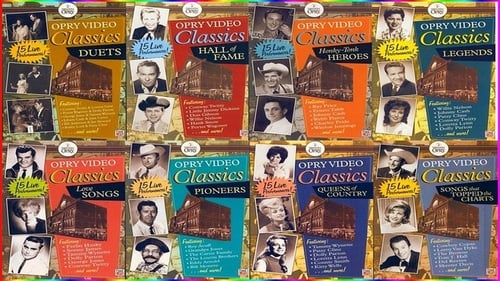
Self (archive footage)
The Carter Family, Roy Acuff and the Sons of the Pioneers belong to a select group of the earliest and most successful country recording artists. Pioneers spotlights them all doing such signature songs as Keep On the Sunny Side, Wabash Cannonball and Tumbling Tumbleweeds, alongside the influential blue-grass bands of Bill Monroe and Flatt & Scruggs. And when Grandpa Jones stomps through Good Old Mountain Dew, you won't be able to sit down.

Himself (archive footage)
The authoritative documentary on Country Music's most influential figure.

Self (archive footage)
Sure, Elvis was the King, but who was the Queen? The Women Of Rockabilly – Welcome To The Club is a documentary search for the "Female Elvis", as we meet the women of rockabilly music and explore the "what-if’s?" and "what-now’s" of their careers. Brenda Lee, Wanda Jackson, Janis Martin and a sassy cast of lesser but no less colorful pretenders to the throne describe their trailblazing days when they were the embodiment of exuberance, sexuality and defiance in a world that wasn’t quite ready for them. A rockin’ feature documentary by Beth Harrington.

Self
No single figure in American music so dominated a genre as did Bill Monroe with bluegrass. BILL MONROE: FATHER OF BLUEGRASS MUSIC features performances by Bill Monroe & the Blue Grass Boys, Lester Flatt, Emmylou Harris, Paul McCartney, the Osborne Brothers, Dolly Parton, Ricky Skaggs, Marty Stuart, John Hartford and a once-in-a-lifetime Blue Grass Boys reunion featuring Del McCoury, Chubby Wise and Bill Keith. The film features archival footage and rare 1990s performances from Monroe's final years including many of the greatest songs from his six decades of recording.
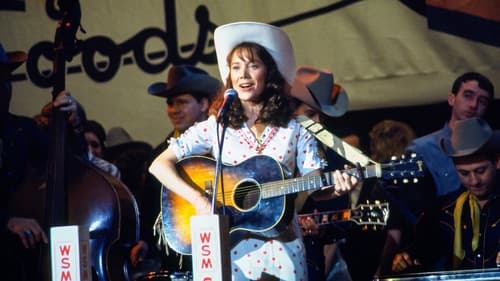
Roy Acuff (uncredited)
A cidade de Butcher Hollow, no Kentucky, tem na exploração das minas de carvão sua única atividade econômica. Lá nasceu Loretta (Sissy Spacek), uma dos 8 filhos de Ted Webb (Levon Helm), um mineiro que criou sua família, apesar de ser bem pobre. Quando tinha apenas 13 anos Loretta se casou com Doolittle Lynn (Tommy Lee Jones). Com 20 anos ela já tinha 4 filhos e tudo indicava que seria uma dona de casa pelo resto da vida. Nesta época ela começou a cantar ocasionalmente para sua família. Seu dom começou a ser notado por Doolittle, que a presenteou com um violão. Com o estímulo do marido, ela grava um disco independente e os dois fazem de tudo para que o disco seja divulgado. Aos poucos Loretta se torna conhecida no mundo da música country, o que faz com que se torne amiga de Patsy Cline (Beverly D'Angelo), que era na época a maior estrela da country music. Mas junto com o sucesso também vieram diversas apresentações, que deixavam Loretta cada vez mais esgotada física e psiquicamente.

Uncle Dave Macon, also known as "The Dixie Dewdrop"—was an American old-time banjo player, singer, songwriter, and comedian. Known for his chin whiskers, plug hat, gold teeth, and gates-ajar collar, he gained regional fame as a vaudeville performer in the early 1920s before becoming the first star of the Grand Ole Opry in the latter half of the decade.

Self
Two Montana saddletramps head to Nashville to open up a detective agency. At first, the agency begins on a lark but, soon, they get involved in a case involving a kidnapped singer and an intricate blackmail scheme.

Self
Capturing the sights, sounds, and magic of Carlton Haney’s 1971 Labor Day Festival in Camp Springs, North Carolina; a three-day outdoor festival—the first of its kind—featuring bluegrass veterans and future stars alike sharing the primitive wood and cinder block stage. More than just capturing one of the largest bluegrass festivals of that decade, this documentary is also an interesting mixture of live performances, interviews, impromptu jam sessions and crowd footage of live music set in a small town surrounded by the now long gone red clay and tobacco shacks of North Carolina.

Hank Williams made two appearances on the Kate Smith TV Show in 1952, on 03/26/1952 and on 04/23/1952. The recordings from these two episodes provide us with with the only known available video of the legendary Hank Williams performing. Other guests on the show include Roy Acuff, June Carter and Anita Carter. Performances include Hey, Good Lookin', Cold Cold Heart, I Saw the Light, I Can't Help It (If I'm Still in Love With You) and Glory Bound Train.
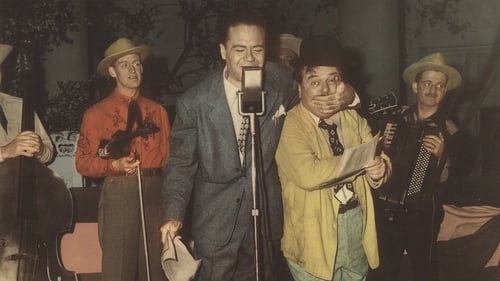
Roy Acuff aka Jack Jones
Posing as unemployed musicians, Roy Acuff and his Smoky Mountain Boys, are being helped by Ted Gibson owner of the Harmony Inn in San Antonio, Texas. Gibson is impoverished because he keeps buying his kleptomaniac Uncle Zeke out of trouble, supports his Ma, and Grandpa. He wants to marry Jean Wallace, and doesn't know that Acuff and his musicians are traveling incognito for the radio show "Who Am I Helping?" If he guesses their identity, he wins $100,000.

Roy Acuff
Country-western favorite Roy Acuff and his Smoky Mountain Boys star in the Columbia musical western Smoky Mountain Melody. Not much happens plotwise: Acuff, playing "himself," is a tenderfoot who somehow manages to come out on top when he heads westward. The villains (who aren't all that villainous) try to promote a phony stock deal, but Roy and his pals foils their plans. The comedy honors go to Guinn "Big Boy" Williams as a blowhard sheriff. Smoky Mountain Melody was scripted by Barry Shipman, the son of pioneering female filmmaker Nell Shipman.

Roy Acuff
A mountain community is thrown into turmoil as the townspeople debate the advantages and disadvantages of having a railroad.
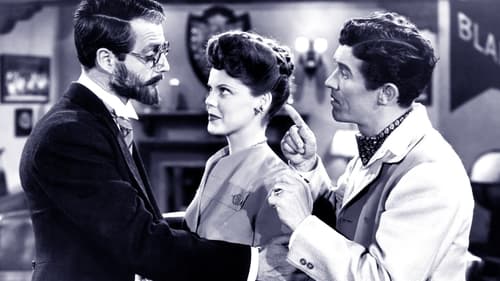
Roy Acuff
Country radio singers of the '40s appear in this tale about a lothario who poses as a professor to seduce coeds.
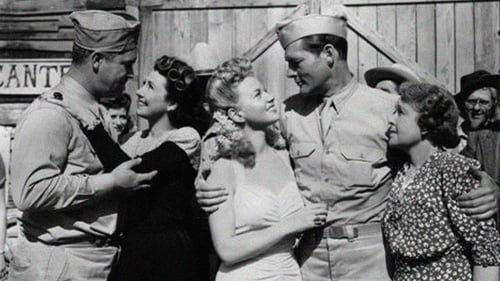
Roy Acuff
Song and comedy revue, featuring Western talents, along with a theatrical troupe taking their vacation on the Lazy B Ranch run by Steve Bradley. Steve is about to enter the army and he and Tex Coulter compete for the love of Connie Grey.
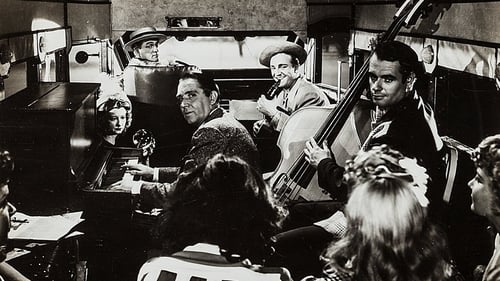
Sheriff Roy Acuff
"Dapper Dan" Franklin and his small troupe of actors become stranded in the small town of Harmony, Tennessee. The town is shackled by Blue Laws imposed upon it by a City Council under the influence of their domineering wives. Harry Cheshire is under the thumb of his sister Abigail Uppington. One look at "Pappy's" daughter Clementine, and Dan decides to stay in Harmony...Blue Laws or no.
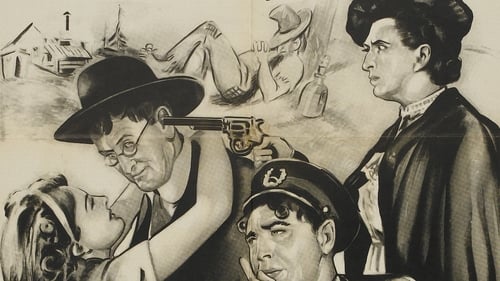
Roy Acuff
Aided by musicians at the Grand Ole Opry, a small-town mayor in the Ozarks takes on a group of crooked politicians.













